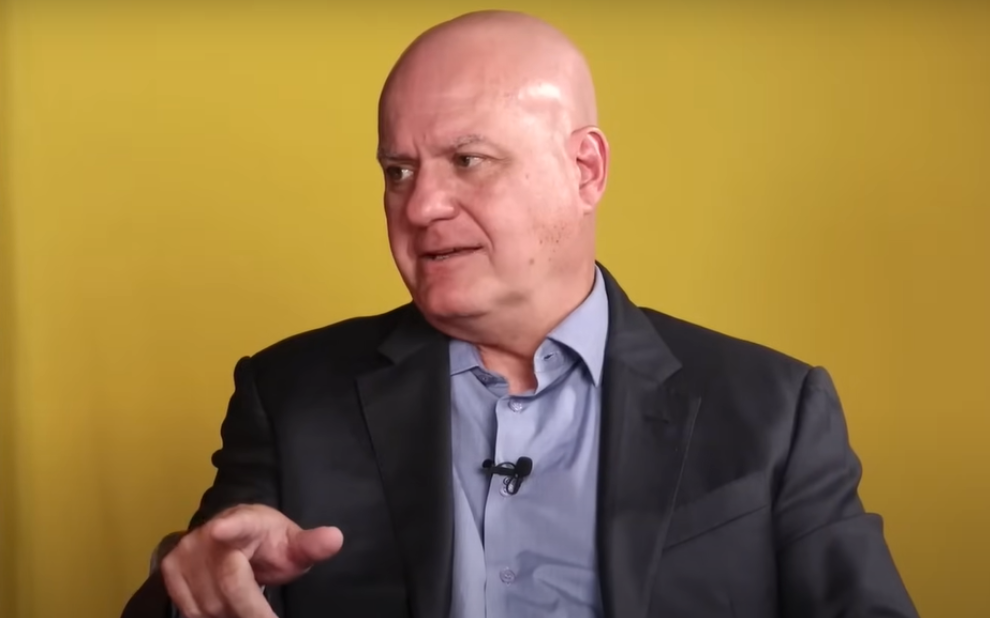Artificial intelligence and the future of society: challenges and opportunities, according to Marcos Facó
The Director of Communication and Marketing at Fundação Getulio Vargas (FGV DICOM), Marcos Facó, recently participated in the podcast “Dialogues with Intelligence,” a production of the newspaper Meio and Insight Comunicação.

The revolution of AI and the job market
According to Facó, AI is driving an unprecedented transformation in the job market. He pointed out that the automation of routine tasks and the development of increasingly sophisticated technologies are redefining the profile of professions.
“Many traditional jobs are being replaced by intelligent systems, but at the same time, new roles and opportunities are emerging,” Facó stated.
He emphasized that adapting to new technologies will be a competitive differentiator, and that professional retraining will be essential for those who wish to remain relevant in the job market.
Education and training: the role of AI in professional development
Another point Facó addressed was the need for the education sector to adapt to prepare future professionals. He underscored that educational institutions should incorporate AI-based tools to personalize the learning experience and develop essential skills for the new technological landscape.
“Education needs to evolve alongside technology to ensure that people are capable of working in an increasingly digital world,” he emphasized.
Additionally, Facó warned that traditional education must integrate knowledge about technology and innovation early on, making learning more dynamic and aligned with market demands.
Digital communication, AI, and the consumption of information
Facó also highlighted how AI is impacting corporate communication. Automation tools, chatbots, and predictive analytics are revolutionizing the way organizations interact with their audiences. He emphasized that AI can optimize marketing campaigns, personalize experiences, and enhance the efficiency of communication strategies.
“The challenge is finding the balance between automation and humanization, ensuring that technology serves to bring people closer rather than push them apart,” he observed.
Facó also raised concerns about the risks of data manipulation and the dissemination of misinformation via AI, particularly on social media and search engines.
“The way we consume information is changing drastically. We need to be vigilant about the quality and transparency of content generated by artificial intelligence,” he cautioned.
AI and geopolitics: the new global scenario
Facó stressed that AI has become a key element in the technological competition between global powers, such as the United States and China. He noted that dominance in this technology impacts political and economic decisions, becoming a determining factor in the future of international relations.
“The race for AI leadership is not just a technological issue but also a strategic competition for power,” he explained.
Balance between innovation and security
In a crucial point of the discussion, Facó addressed the ethical and regulatory challenges surrounding artificial intelligence. He underscored that technological advancements must be accompanied by clear policies and regulations that ensure responsible use of AI. Issues such as privacy, transparency in algorithms, and social impacts must be urgently discussed.
“Artificial intelligence is a powerful tool, but we need to set boundaries and ensure it is used for the benefit of society,” he stated.
He also advocated for the need to find a balance between innovation and digital security, ensuring that technological advancements do not compromise fundamental rights.
Reflections on the future of AI
Finally, Marcos Facó highlighted the importance of ongoing debate about the future of artificial intelligence. He emphasized that, despite innovations, AI should be seen as a means to improve people's lives and not as a substitute for creativity and human thinking.
“Technology must serve society, not the other way around. We need to discuss the limits and possibilities so that AI can be an ally in building a better future,” he concluded.
Watch the complete program here.
Leia também
